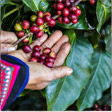
Let's stay in touch
Visit Our Office
Contact Us
Women Merchants: Haiti’s Forgotten Backbone International Republican Institute
-
Wake Up Juice Bar > Blog > Uncategorized > Women Merchants: Haiti’s Forgotten Backbone International Republican Institute
Domestic Violence Survivorswho qualify for Violence Against Women Act & U-Visas. Calls to the Domestic Violence Hotlines went up 30% during the lockdown period. Josef has dedicated her life to bring awareness to issues that affect us all locally and globally such as Immigration, Social justice, Domestic Violence, Child Sexual abuse. Women in Haiti may suffer threats to their security and well-being because of rape, kidnapping and human trafficking.
For example, our efforts to support women-owned farms in Haiti can provide both the food and the income that mothers and grandmothers need in order to improve their families’ lives. The deaths of six abused Haitian women in the mid-1990s especially spurred AFAB into action. They responded by creating spaces for advocacy against domestic violence and developing networks of supporters such as the Codman Square Health Center and the Haitian Multi-Service Center. Informal concerns became official advocacy as the Association developed in the last decade of the 20th century. In 1997, for instance, AFAB hosted its first annual Domestic Violence Prevention Forum where community members and organizations gathered to develop collective responses. Similar to many Haitians immigrating to the United States in the latter half of the 20th century, Carline Desire followed her parents to Boston in 1975 after a political incident in Haiti compromised the safety of her family.
Border and a dramatic consolidation of gang violence — international policymakers were left grappling with the possibility that Haiti was in the initial stages of a full-scale humanitarian crisis. The further deterioration of the Haitian polity in the early months of 2022 has only confirmed that the country has passed that grim milestone. In the midst of a clearly unfolding humanitarian disaster, many friends of Haiti are turning away from the impoverished nation, arguing that everything has been tried and little has worked.
These, in turn, repeatedly interrogate the colonial logics of liberalism and Britishness. Genealogically structured, the book begins with the narratives of freedom and identity presented by Black British Caribbean women. It then analyses critical moments of crisis in British racial rule at home and abroad in which gender and Caribbean women figure as points of concern. Post-war Caribbean immigration to the UK, decolonisation of the British Caribbean and the post-emancipation reconstruction of the British Caribbean loom large in these considerations. In doing all of this, the author unravels the colonial legacies that continue to underwrite contemporary British multicultural anxieties. This thought-provoking work will appeal to students and scholars of social and cultural history, politics, feminism, race and postcoloniality. In addition to her work at HBA, Josef also co-founded the Black Immigrants Bail Fund — a national project of the HBA in response to the high bond amount required of Black immigrants to provide free assistance and relief.
The women, ranging from recent college graduates to working professionals, had noticed a dismissive attitude toward young women involved with community organizations in their social and political circles. “We were in these meetings when we felt as if there was a need for us to have our own space,” recalls Carline Desire, the central organizer of the group’s first meeting. We achieve our mission by investing in and strengthening, the capacity of women-led organizations and movements to advance meaningful and lasting social, cultural and economic change. The Price of Slavery analyzes Marx’s critique of capitalist slavery and its implications for the Caribbean thought of Toussaint Louverture, Henry Christophe, C. L. R. James, Aimé Césaire, Jacques Stephen Alexis, and Suzanne Césaire. Nick Nesbitt assesses the limitations of the literature on capitalism and slavery since Eric Williams in light of Marx’s key concept of the social forms of labor, wealth, and value.
- Together with others, they were able to support women restarting their small business, providing stipends to teachers, allowing women to feed their families and access their basic needs such as clean water, clothing and household items.
- As with any career, you must seek harmony between your social life and your career.
- Lacking experience with housing development, AFAB partnered with the Women’s Institute for Housing and Economic Development to facilitate the planning process.
- The work was translated in 2009, which introduced Chauvet to an English-speaking audience for the first time.
Cécile was a mambo, a Vodou high priestess, whose primary responsibility was maintaining the rituals and relationship between the spirits and the community. She traveled in the darkness of the night, from one plantation to another, to persuade both those enslaved and the maroons to attend a secret meeting in the forest, known as Bois Caïman.
Creating Spaces to Take Action on Violence Against Women and Girls in the Philippines
Within this economic, more on haitian women more on https://toplatinwomen.com/dating-latina/haitian-women/ political, and social crisis, women have had their rights systematically violated and been particularly targeted by repressive forces. Thousands have been forced to flee due to this violence and threats from paramilitaries and armed gangs.
In the neighboring Dominican Republic, where thousands of Haitians have fled, many have been restricted from accessing public services and been deported by security forces in subhuman conditions. These women merchants provide a vital service to their communities, taking on the arduous, yet informal, role of miniature economic engines that keep their communities vibrant.
Haitian American women are disproportionately affected by cervical cancer
Haiti supplied Santo Domingo with troops and weapons to win their independence from Spain in 1865 after they were re-colonized once again. Haitians provided Simón Bolívar with weapons, military strategists and veterans from Haiti’s revolution as well as a safe haven, with the promise that Bolívar would free the enslaved Africans of South America once the nations were liberated – a promise he broke.
Briefly, I think you must be careful to always involve them in decision-making and listen to their ideas and concerns, take their needs into account. We must recognize their potential and give them responsibilities according to their capacity, of course, offer them training opportunities and continuous reinforcement of their skills. However, it requires those who practice it to be relatively strong, because you must not be influenced. Young men or young women who want to enter this sector must be trained, but also must cultivate fundamental values like integrity, and respect for yourself and others. I would suggest to young women engaged in the medical field to get started, because women have proven in many circumstances to be good managers. The health system needs the skills of women who are sensitive to the problems of the population, particularly the most vulnerable.
Heren
With roughly 70 percent of schools in the country’s southwestern region still damaged or destroyed, an estimated 230,000 children are now at risk of dropping out. As immigrants subject to cultural differences and unfamiliar with the available legal protections in the United States, Boston’s growing community of Haitian women in the late 20th century were particularly vulnerable to entrapment in abusive relationships. These women suffered without knowledge that other Haitians were experiencing similar problems and without a trusted recourse for getting help. First, they set out to raise awareness of this issue in the Haitian community so that women could feel comfortable breaking their silence.
Recent Posts
- Finest Gambling enterprise Software you to Pay Real cash Sep 2024
- 400percent Gambling enterprise Incentive United kingdom Full set of 400percent deposit incentives
- 200percent Deposit Bonus: Deposit 20 Explore 60 British 2024
- 200percent Gambling establishment Added bonus Rating 3x Their Put The newest Now offers to own 2024
- 400percent Gambling enterprise Bonus Au Sep 2024





